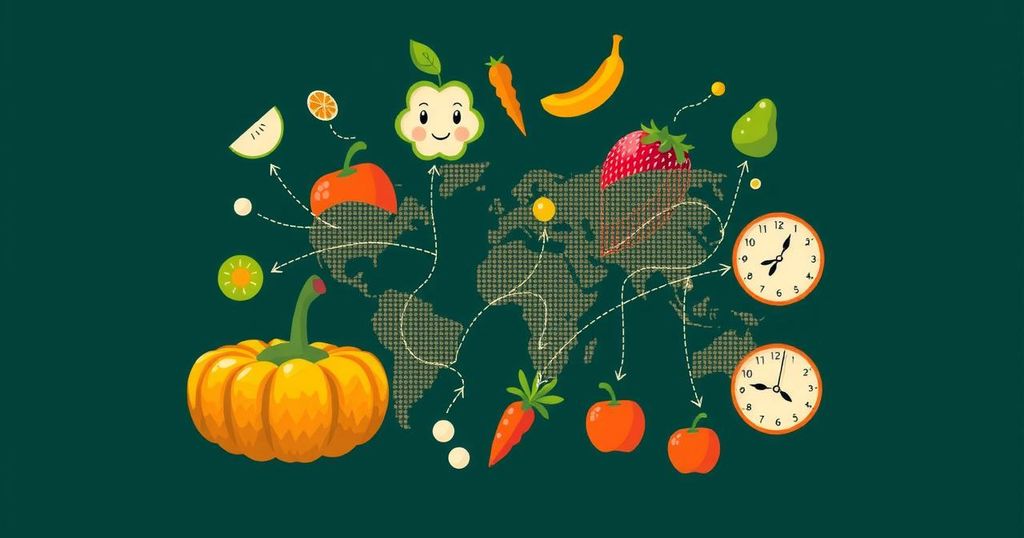World leaders meet at COP29 in Azerbaijan to address climate change and food system emissions. Following COP28’s UAE Declaration, only 40 out of 160 nations are making progress on their climate pledges. Major financial commitments have been made, yet implementation of the UN’s roadmap faces scrutiny. The Alliance of Champions for Food Systems Transformation demonstrates potential for collaborative change. The outcome of COP29 could be instrumental in shaping effective climate action.
This week, global leaders convene in Baku, Azerbaijan for the 29th annual United Nations Climate Change Conference, COP29. The preceding COP28 yielded significant commitments, with 160 nations signing the UAE Declaration on Sustainable Agriculture, Resilient Food Systems and Climate Action, which integrates food systems into national climate strategies. However, despite this progress, the implementation of pledges remains sluggish; estimates indicate that only 40 out of 160 committed nations are progressing towards revising their Nationally Determined Contributions (NDCs) ahead of COP30. The commitment to reform food systems is critical, as they account for a substantial portion of global emissions, predominantly from meat consumption. Edward Davey, a senior advisor with the Food and Land Use Coalition, emphasizes the need for dietary changes alongside sustainable agricultural practices, particularly in leading Global North countries, including the UK and the US. Such shifts are essential if these nations are to meet their climate obligations. Major financial support for food systems reform emerged from COP28, including commitments from the UAE and the Gates Foundation. Furthermore, over 200 non-state actors have pledged their dedication to transforming food systems, showcasing the widespread recognition of this issue. The UN’s Food and Agriculture Organization (FAO) has drafted a roadmap that aims to navigate food system changes while addressing global food security, particularly as the world anticipates a population of 9.7 billion by 2050. Nonetheless, implementation has faced criticism and delays, particularly concerning the clarity and efficacy of proposed guidelines. The Alliance of Champions for Food Systems Transformation represents a hopeful development, actively addressing unique national challenges through regular engagement and collaboration. Countries are seeking to create synergies to combat climate impacts collectively and manage food systems sustainably, showcasing a potential path forward. Ultimately, the success of the initiatives launched at these conferences demands actionable commitments and cooperative efforts among both developed and developing nations as global stakeholders press toward effective climate action.
The discussion on food systems and their impact on climate change has gained momentum in recent years, particularly due to the recognition that food production is a significant contributor to greenhouse gas emissions. The COP meetings serve as platforms where world leaders negotiate and commit to strategies aimed at mitigating climate impacts, with COP28 marking a pivotal moment by addressing the agricultural sector directly. Despite the commitments made, there remains a pronounced gap between pledges and actionable outcomes, prompting the need for urgent revisions to national policies to incorporate food systems in climate strategies effectively.
As COP29 approaches, the potential for success in achieving the objectives set out during previous conferences hinges on the commitment and progress of all signatory nations. The integration of food systems into national climate strategies is undeniable; however, substantial delays and criticisms highlight the challenges ahead. Collaboration across nations, particularly focusing on dietary and agricultural reforms, is essential to reduce emissions and enhance food security. The upcoming discussions in Azerbaijan represent a critical juncture in addressing these ongoing challenges.
Original Source: sentientmedia.org






